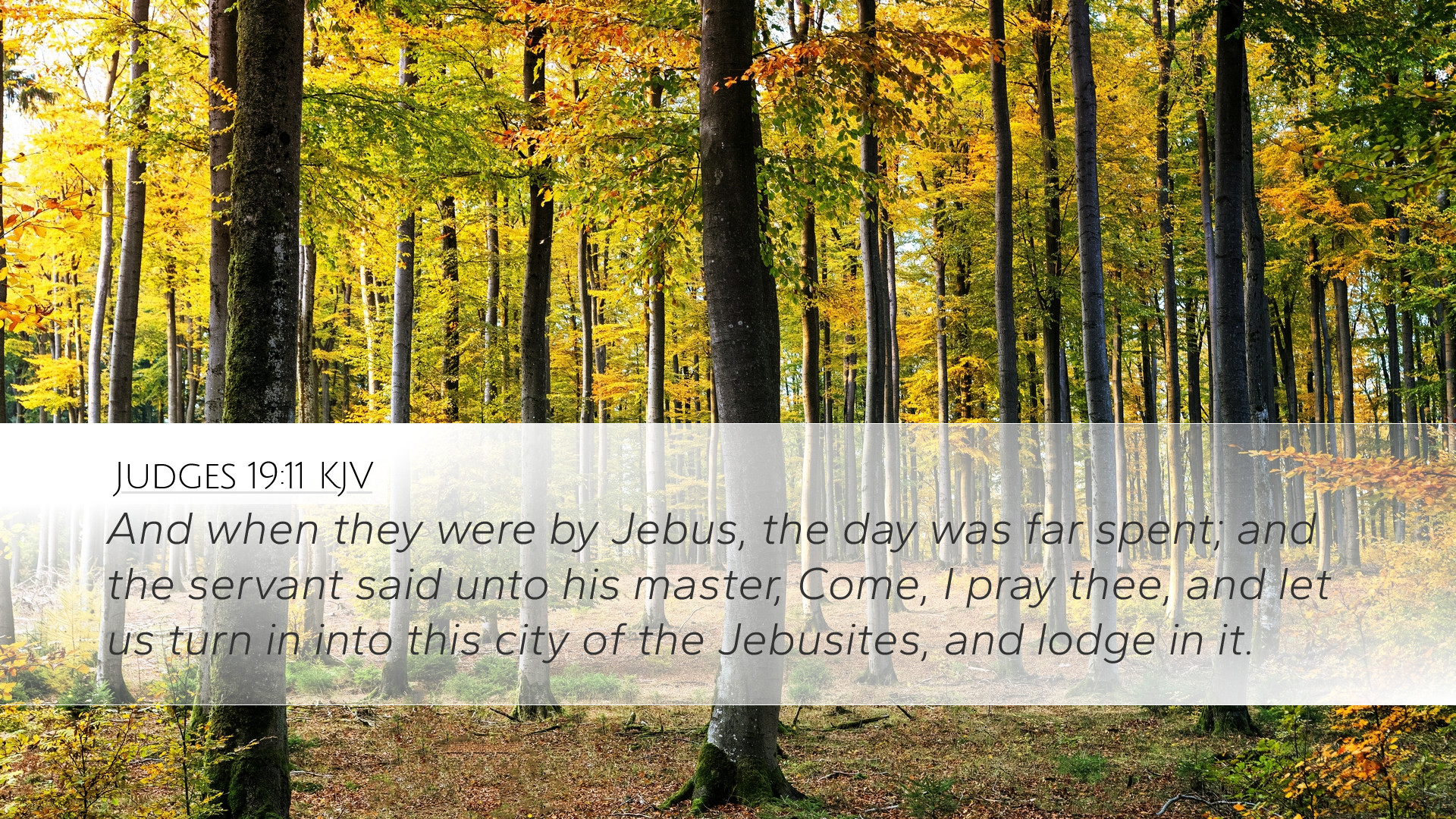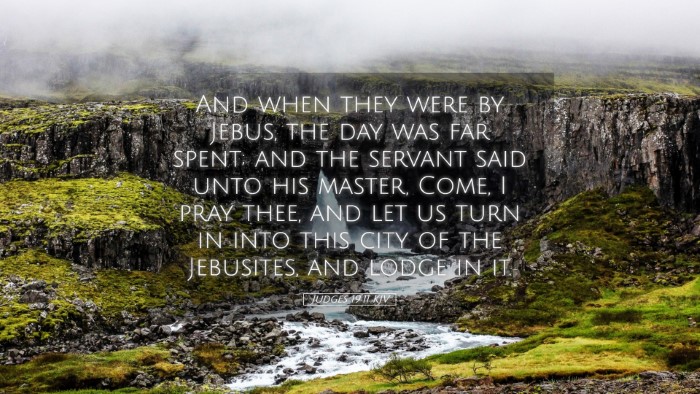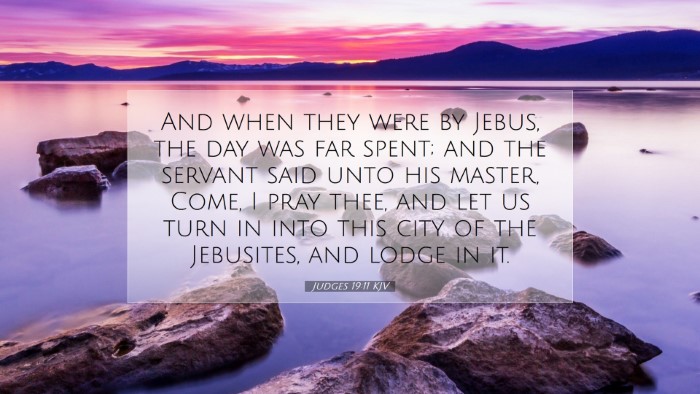Commentary on Judges 19:11
Bible Verse: Judges 19:11 - "So they passed on and went their way; and the sun went down upon them when they were by Gibeah, which belongeth to Benjamin."
Introduction
Judges 19 presents a narrative that serves as a cautionary tale about the moral decay during the period of the judges in Israel. It illustrates themes of hospitality, betrayal, and the resultant chaos that ensues from societal breakdown. The verse in focus, Judges 19:11, marks a pivotal moment in this harrowing story.
Contextual Background
The story of Judges 19 is set against the backdrop of a fragmented Israelite society. The Book of Judges depicts a time directly following the conquest of Canaan when Israel was ruled by judges rather than kings. This was an era characterized by the cycles of sin, oppression, repentance, and deliverance. The significance of this passage resides not just in its account of events, but in its reflection of the broader spiritual and moral condition of Israel.
Analysis of Judges 19:11
In this specific verse, we see the Levite and his concubine making their way to Gibeah. The mention of the sunset serves a dual purpose: physically indicating a time of day and symbolically representing the moral darkness that is about to envelop the narrative.
Commentary Insights
- Matthew Henry:
Henry emphasizes the importance of hospitality in ancient Near Eastern culture, noting that both Israel’s laws and traditions upheld the duty to welcome strangers. The failure of Gibeah's inhabitants to extend hospitality reflects a deeper spiritual malaise within the community. The Levite's choice to stop at Gibeah, a city within Benjamin, is laden with irony and foreshadowing, as it becomes the stage for impending violence.
- Albert Barnes:
Barnes focuses on the geographical and moral implications of the journey. He notes that the Levite, seeking refuge, arrives in an Israelite city, contrasting the expectations of safety with the reality of danger. His commentary stresses the significance of choosing Gibeah as a place to rest, pointing out that this decision exemplifies misplaced trust in one’s fellow Israelites.
- Adam Clarke:
Clarke elaborates on the nature of the Levite's journey, highlighting the sense of urgency and desperation as the sun sets. He indicates that the timing suggests a transition into a place where darkness denotes moral ambiguity. Clarke views the rapid onset of night as metaphorical for the rapidly deteriorating social structures and the abandonment of covenantal ethics among the Israelites.
Theological Implications
This verse, while seemingly simple, invites profound theological reflection on the nature of community and ethics in the context of God’s covenant. It raises questions about the responsibilities of individuals to uphold justice and hospitality, especially among God’s chosen people. The darkness that gathers is not just physical but metaphysical, hinting at the judgment that is to follow as the narrative unfolds.
The Failure of Community
The passage serves as a critique of insular communities that fail to adhere to the principles laid out in the Torah. The Levite is in dire need of shelter, which should have been willingly offered by his fellow Israelites. Instead, the text prepares the reader for a shocking display of disloyalty among the tribe of Benjamin, illuminating the consequences of a community that strays from God’s commands.
Significance of Gibeah
Gibeah, representing a flawed and morally compromised community, becomes the setting for one of the darkest events in the scripture. The decision to stay there was laden with implications, showcasing how quickly the light of righteousness can fade into darkness when communities forsake their covenantal responsibilities.
Practical Application
This commentary on Judges 19:11 is vital for pastors and theologians today, reminding us of our call to embody hospitality and righteousness within our communities. The moral lessons emphasized through this narrative urge us to confront the realities of failing societal norms, reminding us that we must strive to be beacons of light in times of darkness.
Reflection Questions
- In what ways do we, as individuals and congregations, demonstrate the principles of hospitality and righteousness?
- How can we address the moral failures within our communities echoed in this passage?
- What steps can we take to ensure that we remain vigilant against societal decay, as depicted in this text?
Conclusion
Judges 19:11 serves as a poignant reminder of the dangers of neglecting our ethical duties to one another. The commentary drawn from the insights of Henry, Barnes, and Clarke provides a framework for understanding the complexities of the text, enhancing our appreciation for the moral and theological lessons embedded within it. As we continue in our study of scripture, let us be mindful of our roles in promoting good within our communities, lest we find ourselves in similar circumstances as those depicted in Gibeah.


